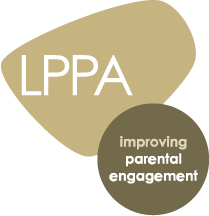Calls for positive engagement can often fall on deaf ears, but teachers must endeavour to create a positive relationship with parents if they hope to improve pupil outcomes.

I teach English at an experimental kindergarten in Foshan, China. I prepare my pupils not only for primary school, but also for later life.
I just had my ‘open class’, a day in which parents can observe how and what I teach; how my students study not only English (the only subject I’m supposed to teach them) but Science, Maths, Art, good manners, good behaviour and so on.
Parents saw two lessons where pupils really shined, ‘Space’ and ‘The human body’. They all knew so much about it, especially the Solar System (all their understanding demonstrated in English, second or even third language for some).
I wish I could say the ‘open class’ went well, but it didn’t. There are so many things that can go wrong during lessons, and most of the time I know how to respond. But there is one issue I find very difficult to contend with: uneducated parents.
While delivering the lessons I could hear the parents talking, taking videos and pictures and having a great time. So far so good, and who wouldn’t take pride in watching their children learn?
Optimus members can download our parental partnership model policy for the early years.
After the lessons, I invited the parents to a meeting to talk about their children’s progress. I outlined developmental goals, teaching methods, interviews for primary school, things you’d expect to be seen as important.
It was also a great opportunity for me to show them all the extra work I put into educating their children; the additional hours spent preparing lessons, marking homework and so on.
To my dismay some parents spent the entire meeting talking to one another, others talking on the phone, one father even playing a game on his phone.
I kept quiet; if they don’t care, why should I? Well, because it’s my job.
We eventually reached the last point in my PPT: co-operation between teachers and parents. I made the point that teachers and parents need to work together in order to prepare the kids for the future.
We can only work co-operatively if there’s mutual respect, pointing as I said this to two chatting mothers in the first row. I was expecting an immediate reaction but I forgot that they don’t know much English, so there was a delay while my colleague provided a translation.
Nevertheless, they were taken aback. I could enjoy my moment of victory for only so long, however.
‘Some parents are not happy with you’, my boss later told me. Teachers never win!
I always remember what my father used to say: you need a whole village to educate one child.
Two years ago I had a different class and the best possible relationship with parents. We would meet for lunch, dinner, weekends away and so on. A close relationship helped parents better understand my teaching techniques, my goals for pupils and much more.
Most importantly, I stopped seeing my pupils as just that, my pupils. After all, they are somebody’s most precious things.
We shared the children’s time and we shared goals. Even today we remain in touch, and I can’t describe the joy I feel when I see my ex-pupils doing so well in primary school.
When parents and teachers don’t work together, pupils can’t make as much progress. Is this the future of education? I always remember what my father used to say: you need a whole village to educate one child.
Frustrating as it is, I will endeavor to earn the respect and support of parents for the benefit of their children. Will it be easy? No, but I’m prepared for the challenge.
 Accrediting partnerships
Accrediting partnershipsThe Leading Parent Partnership Award gives schools a coherent framework to deliver effective parental engagement from early years to post-16.
To find out more, visit the Award Place website.